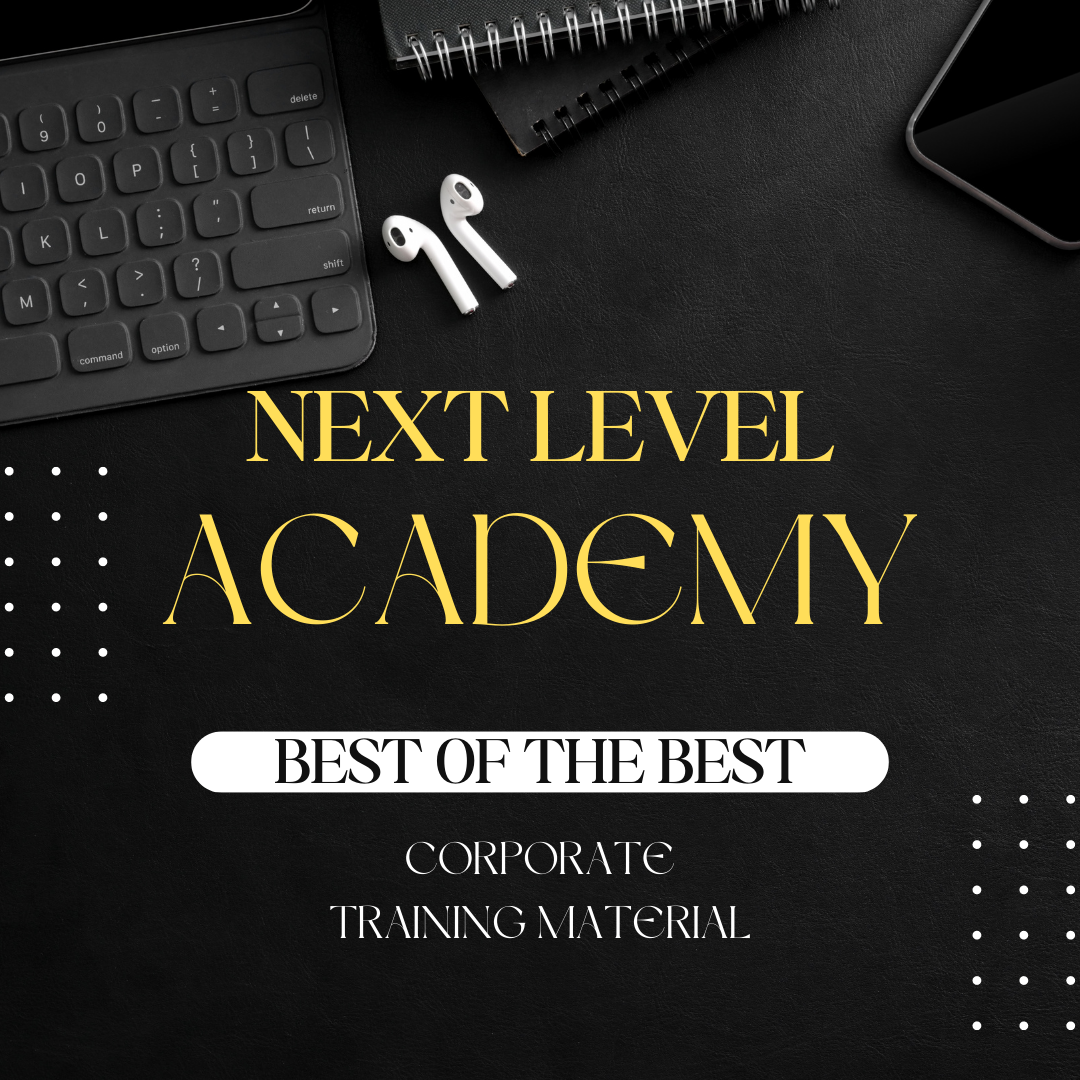Transform Your Coaching Journey with Impactful Training Courses
Mar 05,2025 | Next Level Academy
In the ever - evolving landscape of the coaching profession, coaching training courses stand as the cornerstone for both aspiring and seasoned coaches. These courses are not merely educational programs; they are gateways to unlocking your full potential as a coach, enhancing your skills, and building a thriving coaching practice.
The Paramount Importance of Coaching Training Courses
Building a Solid Foundation
For those new to the coaching field, training courses provide the essential building blocks. They introduce fundamental concepts such as the coaching philosophy, the art of active listening, and the power of asking the right questions. In a basic coaching training course, you'll learn how to create a safe and supportive space for your clients, where they can freely express their thoughts and feelings. This foundation is crucial as it forms the basis of all successful coaching relationships. Without it, coaches may struggle to connect with their clients on a deep level, hindering the effectiveness of their coaching interventions.
Staying Relevant in a Competitive Field
The coaching industry is highly competitive, with new coaches entering the market regularly. To stand out, it's essential to stay updated with the latest trends, research, and techniques. Coaching training courses play a pivotal role in this regard. For example, courses on neuro - linguistic programming (NLP) in coaching can offer insights into how the mind works and how to use this knowledge to help clients overcome limiting beliefs. By continuously learning and incorporating new ideas into your coaching practice, you can offer more value to your clients and gain a competitive edge.
What Coaching Training Courses Encompass
Core Coaching Skills Training
These courses focus on honing the fundamental skills that every coach needs. This includes skills like goal - setting with clients. A good coach knows how to help clients define clear, achievable, and time - bound goals. Through role - playing and real - life case studies, participants in these courses learn how to guide clients in breaking down their long - term goals into actionable steps. Another crucial aspect is providing effective feedback. Coaches need to be able to give feedback in a way that is constructive, motivating, and helps clients grow. Training courses teach coaches how to frame feedback in a positive light, highlighting areas for improvement while also acknowledging clients' strengths.
Niche - Specific Training
As the coaching industry has diversified, there is a growing demand for coaches with specialized skills. Niche - specific training courses cater to this need. For instance, if you're interested in becoming a health and wellness coach, there are courses that delve deep into topics such as nutrition, exercise physiology, and stress management. These courses not only provide you with the theoretical knowledge but also practical tools and strategies to help your clients achieve their health - related goals. Similarly, for those interested in executive coaching, courses focus on leadership development, strategic thinking, and corporate culture.
Ethical and Professional Standards Training
Ethics are the backbone of the coaching profession. Coaching training courses often include modules on ethical and professional standards. Coaches need to understand the importance of confidentiality, integrity, and respect for their clients. They must also be aware of the boundaries of their coaching practice. For example, a coach should know when it's appropriate to refer a client to a medical or psychological professional if the client's issues are beyond the scope of coaching. By adhering to these ethical and professional standards, coaches build trust with their clients and uphold the integrity of the coaching profession.
How to Select the Right Coaching Training Course
Define Your Goals
The first step in choosing a coaching training course is to clearly define your goals. Are you looking to start a new coaching career? Or are you an existing coach aiming to expand into a new niche? If you're a fitness enthusiast wanting to transition into fitness coaching, you'll need a course that focuses on fitness - related coaching techniques, client assessment, and exercise programming. On the other hand, if you're an experienced life coach looking to add business coaching skills, you should look for courses that cover business strategy, marketing, and financial management.
Research the Course Provider
The reputation of the course provider is of utmost importance. Look for providers with a track record of producing successful coaches. Check online reviews, testimonials from past participants, and if possible, speak to alumni of the courses. A good course provider will have experienced and qualified instructors who are themselves successful coaches. They should also offer comprehensive support, including post - course mentoring and access to a community of coaches. Additionally, check if the course is accredited by recognized coaching bodies. Accreditation ensures that the course meets certain quality standards.
Evaluate the Course Content and Structure
Carefully review the course content to ensure it aligns with your learning objectives. A well - structured course should start with the basics and gradually progress to more advanced topics. It should also include a balance of theory and practical application. For example, a course that includes hands - on coaching practice, where you can work with real or simulated clients under the guidance of an experienced coach, is invaluable. The course structure should also be flexible enough to accommodate different learning styles. Some people prefer in - person training for the face - to - face interaction and immediate feedback, while others may find online courses more convenient as they can learn at their own pace.


